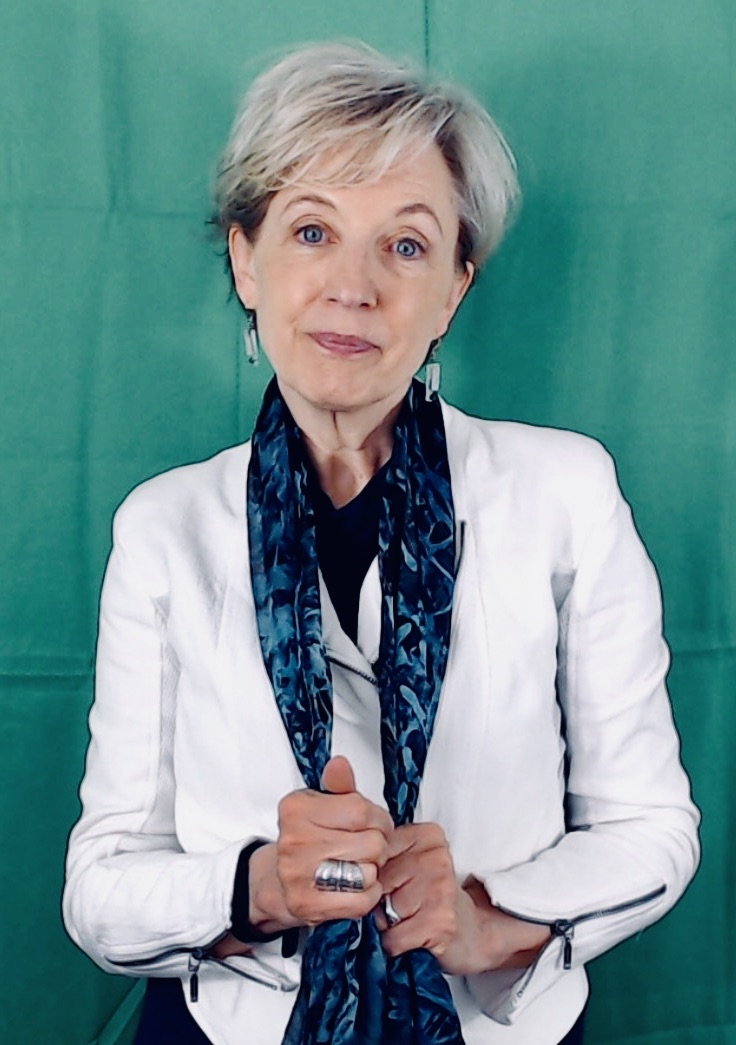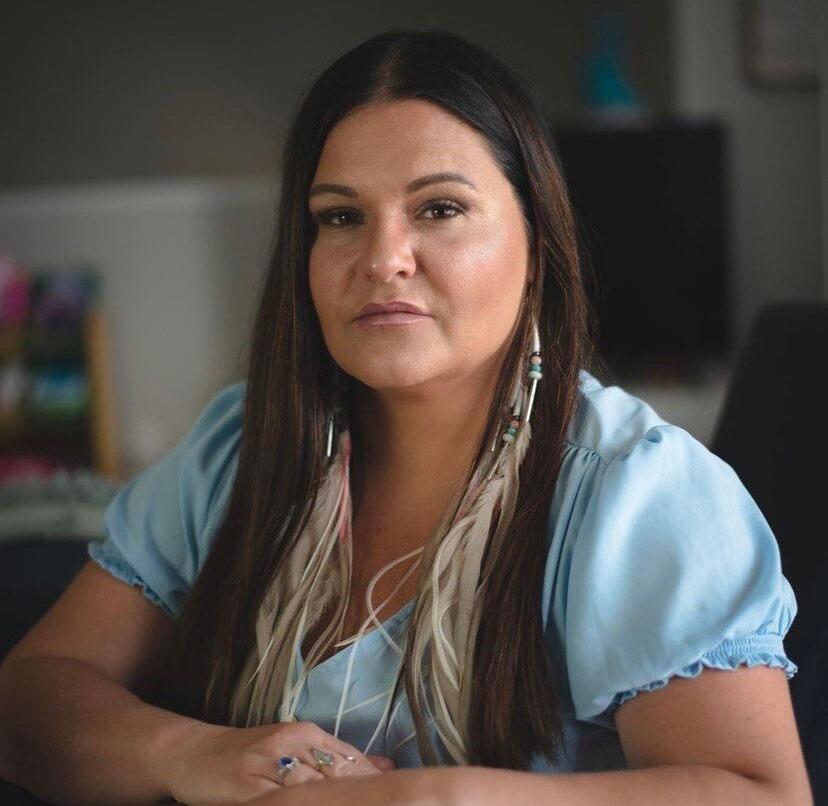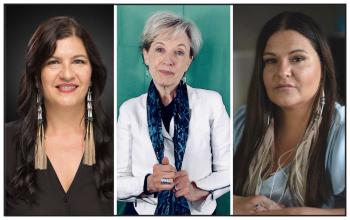Image Caption
Summary
Local Journalism Initiative Reporter
Windspeaker.com
Hate speech on social media is working to silence the voices of women, said Shari Graydon, catalyst and director of Informed Opinions, an organization that aims to give that voice back.
It has launched a $2 million campaign called Toxic Hush, which includes a tribunal allowing five individuals to share their experiences and concerns, and three 'citizen judges' to provide legal context.
“Online hate is eroding the equality gains that took decades to achieve,” said Graydon.
“We have been on a slow march over the last one hundred years to increase access and respect for women, for Indigenous people, for Black people and immigrants, and the silencing effect of online hate and intimidation is really starting to undo the progress that we've made.”

In 1990, Graydon joined MediaWatch, now known as Informed Opinions, as a way to get women’s voices heard as experts in mainstream media. Women, particularly Indigenous, Black, and gender-diverse, were too often silenced and Graydon made it her work to train these women, supporting diverse voices to influence public conversation.
But, Graydon said, “the environment has gotten much more toxic in the last couple of years.” These same women have become targets of online harassment, trolling, cyberbullying, cyberviolence and hate speech.
“I think it's a fair thing to say that the higher profile women have, and more perceived power and influence they have, the more of a target they become,” said Graydon.
While there are no statistics yet available to provide the scope of women who face online abuse, a research survey underway by Informed Opinions indicates that 90 per cent of respondents (almost 200 women) have been targeted. Further breakdown shows that women with intersectional identities are the hardest impacted. Intersectional identity refers to individuals whose identities intersect a number of factors, including race, ethnicity, sexual identity and sexual expression.
Journalist Brandi Morin (from Treaty 6 Alberta) and advocate Lori Campbell (from Treaty 6 Saskatchewan) are two such Indigenous women. They were approached by Informed Opinions to speak about the harassment and personal threats online they had experienced.
As a journalist who covers such issues as “oppression, violence and human rights abuses” that Indigenous people face, Morin uses social media to get her stories to the world.

“Social media breaks the boundaries of borders, cultures and geographics. It’s a powerful tool to engage with people who would otherwise be unaware of these atrocities,” she explained in her survey response.
Not only has her work been attacked, but Morin as a person has also been verbally attacked and threatened online.
“Last fall I received my first death threat in the form of an email from a sender with a pseudo name. It was vile,” wrote Morin. She feared for her safety and that of her four-year-old daughter.
The number of hate emails rose when Morin tackled the truckers “Freedom Convoy” in Ottawa last February. She wrote an opinion piece in the Toronto Star, which contrasted the convoy’s complaints with the human rights abuses and restraints on the freedoms faced by Indigenous nations.
"If freedom for all was what they were protesting for, then where were they all these years while their Indigenous neighbours have been suffering?" she wrote in that piece.
Morin says she was stunned by both the social media attacks and the vitriol in emails she received in response.

Campbell calls herself an “Indigiqueer woman.”
“I use social media as a tool to educate, share events, amplify good news stories, and ultimately, to change hearts and minds. I use multiple platforms because they are somewhat different audiences,” wrote Campbell in her survey submission.
In February, during the trucker convoy, Campbell tweeted about an unrelated incident that made her uncomfortable when she “encountered two middle-aged white men in my neighborhood while walking my dog. They were prominently displaying the Canadian flag on bandanas and it was unusual. They loudly tried to engage in conversation with me as I had to pass by them on the sidewalk—again, it felt unusual—it felt uneasy—in fact it felt more than that—it felt threatening and intimidating.”
Her tweets were met by supporters, but also “haters… who started targeting the validity of my experience, my identity and my assumed politics. My message spoke to racism, white supremacy and gendered violence. It spoke to the experience of an Indigiqueer woman—and the haters responded prolifically on my thread.”
Campbell wrote that her “personal sense of safety on and offline felt diminished.”
The attention and responses Morin and Campbell received as women are not unique, said Graydon. Online hate speech has risen in the past two years by about 20 per cent.
“I think it's partly a function of the pandemic. Because people are stuck to their computers, they're not out in the world interacting and the mental health stress that I think everybody experiences, I guess trolls experience that too.
“So, if you’re an angry man who feels disenfranchised and thinks the world is out to get you, you are online, you’re consuming stuff in your bubble that’s just getting exacerbated,” said Graydon.
She also points to the influence the United States has on Canadians, with former U.S. President Donald Trump making racist and hate speech acceptable and, in turn, emboldening white supremacists and incel (involuntary celibate) men.
When Morin reported the threat to the police, she was told nothing could be done until the situation “escalated.” Other women are told to stay offline.
That’s not something Morin nor Campbell wants to do.
Lodging complaints against a platform is hardly an option either, said Graydon.
“Women are already really, really busy. Add in dealing with a complaint system that might be bureaucratic or time consuming, it's not one more thing we want to add to our days. So, although I think it is valuable and important, I understand why women don't do it,” she said.
Graydon said, “one of the messages we’re really trying to deliver with the Toxic Hush campaign is that it shouldn't be up to women to do this.”
The Toxic Hush tribunal, which includes Olympic athlete and Kahnawake Mohawk member Waneek Horn-Miller, will take its findings to the expert advisory group that provides advice to Canadian Heritage Minister Pablo Rodriguez on legislation and regulations to improve online safety and regulate harmful content.
“We want to be sure that women’s perspectives are reflected in the solutions that they come up with,” said Graydon.
“The (social media) platforms have the capacity to do more than they’re currently doing, but we know from other industries, companies that are in the business of making money will do as little as possible unless they’re forced to.”
To help women who are targets of online hate speech, Informed Opinions launched a Toxic Hush Toolkit last fall. The kit outlines steps women can take for “self-defense,” including setting parameters in various platforms to block hate speech and reporting abusers.
Its advice on “self-care,” states, “Take a deep breath and know that you’re not alone. Sadly, far from it.”
Graydon understands that wiping online abuse from social media will not be easy. She expects the fight will continue for at least the next five years. She points out that the popularity of social media blew past everyone’s expectations and the government is playing catch-up.
Unfortunately, that catch-up is at the cost of women.
“When chronically underrepresented groups are being driven from public conversations and crucial fields of influence, that is an existential threat to our democracy and it harms everybody,” she said.
Morin and Campbell are not willing to be silenced.
“I know my work in the world and I’m not stopping anytime soon. I will continue to add my voice, my skills, my knowledge and passion to those who cry out for justice, including those who are targeted by online violence. We will be heard, we will be seen, and we will kindle the fires of justice across these lands. And we will not stop until the world is ablaze with hope, with respect, with peace, and with love,” writes Morin in her submission.
“…I remind myself…that I have a prominent status as a leader and a platform that can be far reaching and have impact—and so even though my voice shakes I will speak because if those of us who can don’t, things could be so much worse. And also—many spoke before us and blazed trail and I will not let the hard work of our ancestors go backwards for future generations to suffer,” wrote Campbell.
For more information go to https://informedopinions.org/stophate/
Local Journalism Initiative Reporters are supported by a financial contribution made by the Government of Canada.

